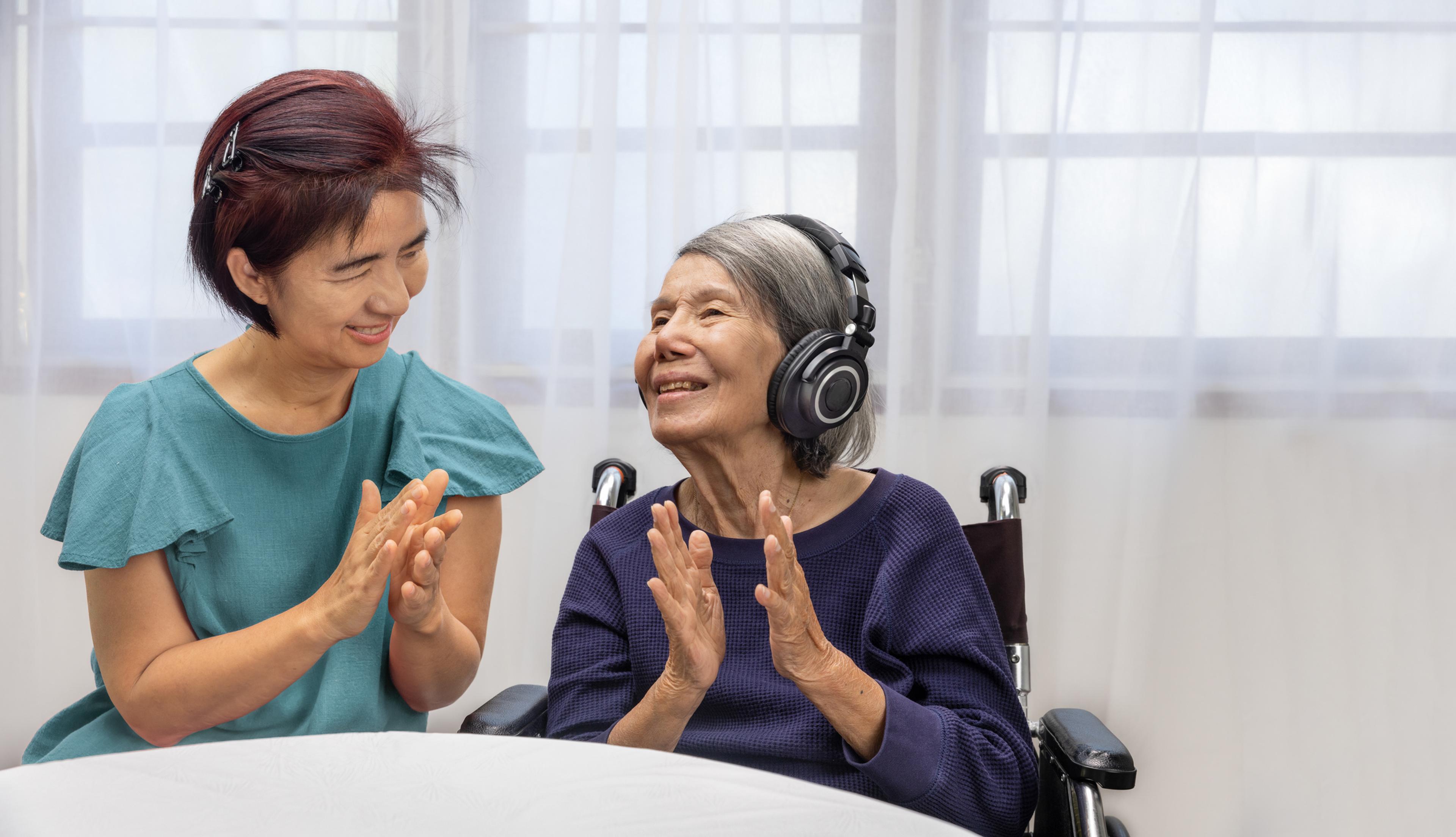Music Therapy for Alzheimer’s Disease
Jake Newby
| 3 min read

So many of us turn on music to relax. It has long been identified as a source of stress management. But recent research suggests it can also be used as a therapeutic tool that increases cognitive function in Alzheimer’s patients.
Alzheimer's disease is a brain disorder that slowly erodes memory, thinking skills, and the ability to complete simple tasks. Classic treatment methods include cognitive stimulation therapy (CST) and cognitive rehabilitation, but music therapy has proven to be successful as well over the past few decades.
Many families of Alzheimer’s patients have attested that music therapy is a joyous activity to engage in. Increasing evidence states that music-based interventions can be helpful for health conditions that occur during childhood, adulthood, or aging. Research states it has also benefited people with these conditions:
- Anxiety
- Autism spectrum disorder
- Cancer
- Cognitive Impairment and Dementia
- Chronic and acute pain
- Chronic Obstructive Pulmonary Disease (COPD)
- Dementia
- Parkinson’s disease
- Stroke
How does music affect the brain?
Performing or listening to music activates a variety of structures in the brain associated with thinking, sensation, movement, and emotion. According to the National Institute of Health, these brain effects may have physical and psychological benefits.
Music can release chemicals and hormones such as dopamine in the brain that evoke emotional reactions, memories, and feelings. A 2017 study examining music-evoked emotions found that “happy” music can trigger the muscles around our mouth for smiling, while “sad” music makes us frown by using muscles around our eyebrows, which functions to move the eyebrow down and inward toward the nose and inner eye.
What is music therapy?
Music therapy is the clinical and evidence-based use of music interventions to accomplish individualized goals within a therapeutic relationship, led by a board-certified music therapist.
A music therapist may start with an assessment in which they ask questions to learn more about a patient’s music preferences and experiences. This helps tailor future sessions to their specific needs. Music therapy experiences may include singing songs, playing instruments, writing music, or listening to music and analyzing the lyrics.
How does music therapy help Alzheimer’s patients?
Studies have shown that music may reduce agitation or improve behavioral issues that are common in the middle stages of the beat, according to the Alzheimer’s Association, which says that even in the late stages of Alzheimer’s, a person may be able to tap a beat or sing lyrics to a song from their childhood that sparks nostalgia.
According to the American Music Therapy Association, music therapy interventions can address a variety of health care and educational goals. It can:
- Alleviate pain
- Enhance memory
- Express feelings
- Improve communication
- Manage stress
- Promote physical rehabilitation
- Promote wellness
Music therapy can positively impact:
- Behavior
- Cognition
- Mobility
- Mood
- Pain relief
- Physical rehabilitation
A 2022 study that examined Alzheimer’s patients found that despite severe memory problems, individuals can remember music. Music helped people remember personal memories, even if the music wasn’t related to the events they remembered. The study found that this process can help Alzheimer’s patients keep a sense of who they are. Additionally, music has been used as a way to help Alzheimer’s patients connect with others.
The same study found that Alzheimer’s patients can learn new songs, remember new information, and react emotionally to music. Music therapy helped:
- Improve their focus.
- Increase their ability to communicate with their loved ones.
- Rely less on certain medications.
If you believe music therapy may be helpful for yourself or a family member, reach out to your primary care provider to learn more about coverage and how to get started.
Related:
Photo credit: Getty Images





